Our Community Development Grants provide financial support and resources for local disc organizations who run programs prioritizing racially and ethnically underrepresented and/or low-income youth.
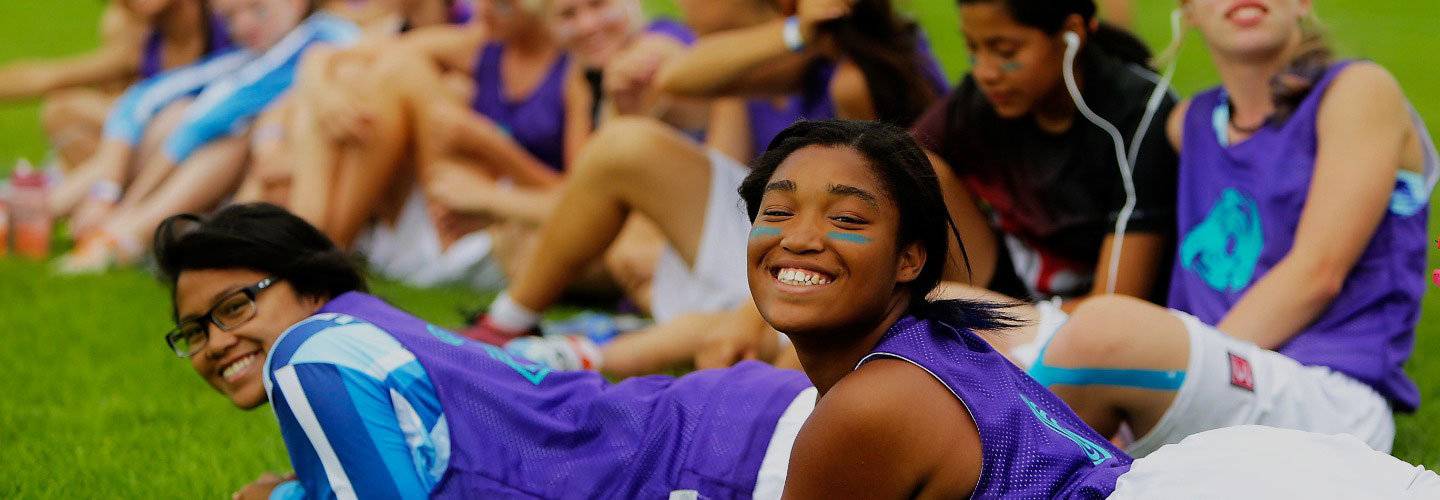

USA Ultimate values the contributions and perspectives that a truly diverse community provides our sport and its culture. Equity, diversity and inclusion (EDI) are critical to the integrity of our sport, and USA Ultimate is committed to increasing access to and participation in the sport, particularly amongst youth in underrepresented communities.
USA Ultimate Inclusion Statement
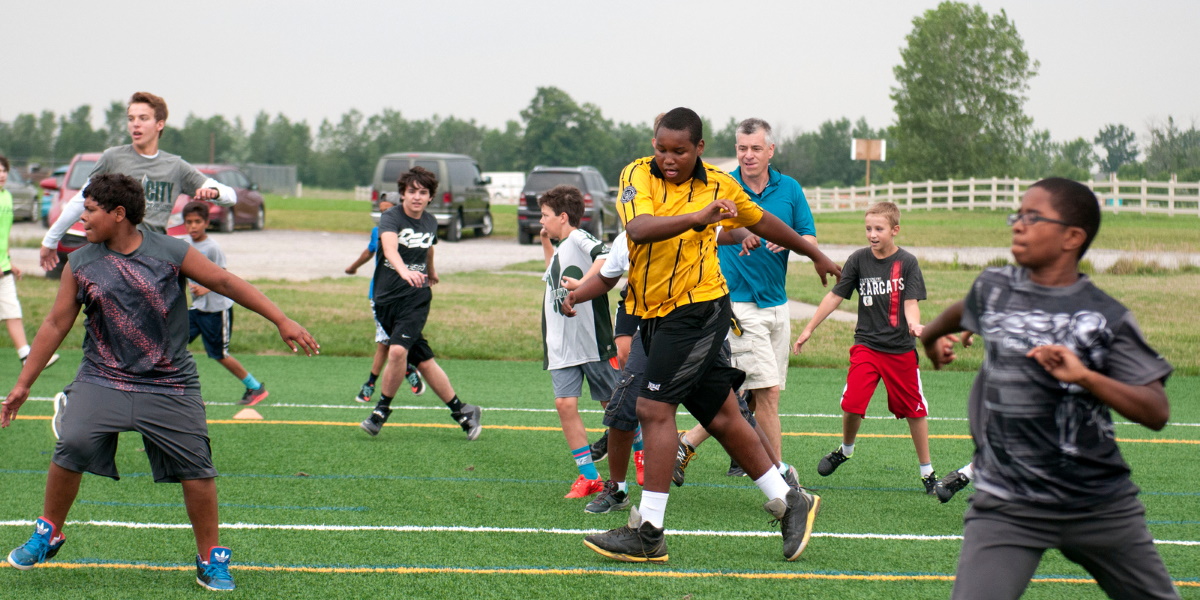
We believe the sport and the community of ultimate should reflect the population of the entire United States. Black, Indigenous and people of color athletes, as well as athletes from diverse socioeconomic backgrounds, should be equitably represented within our community.
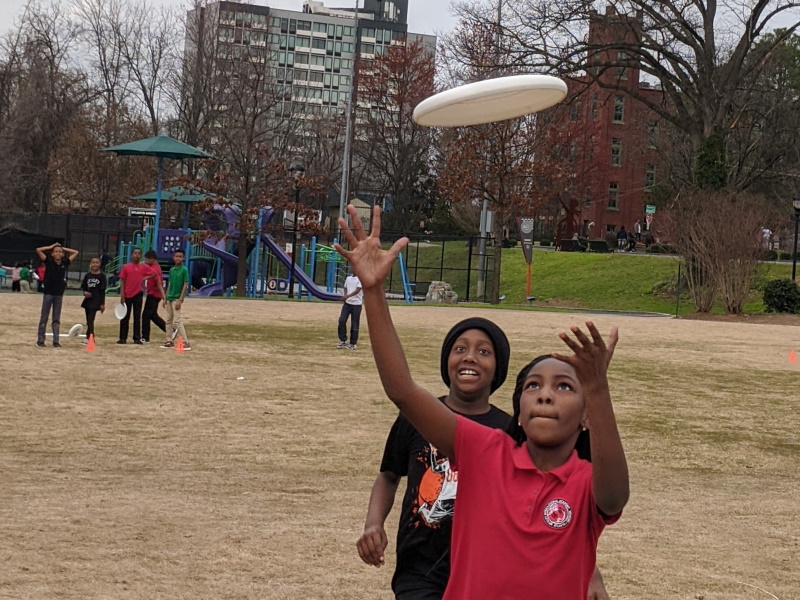
Our Community Development Grants provide financial support and resources for local disc organizations who run programs prioritizing racially and ethnically underrepresented and/or low-income youth.
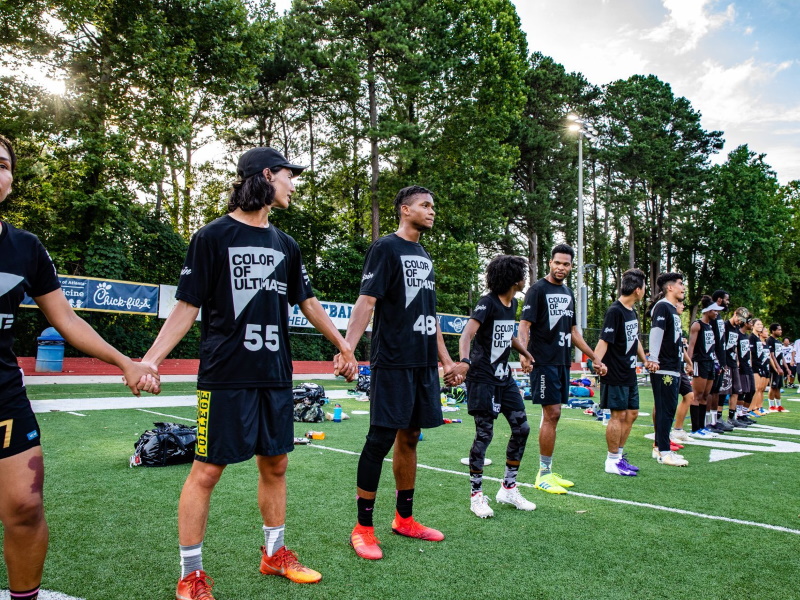
Since 2019, we have collaborated with Color of Ultimate, partnering to create opportunities for BIPOC players to build community at major USAU events and to showcase games featuring two teams of elite players of color designed to help raise awareness about the current racial and socioeconomic inequities in ultimate.
Photo – Ryan Cameron
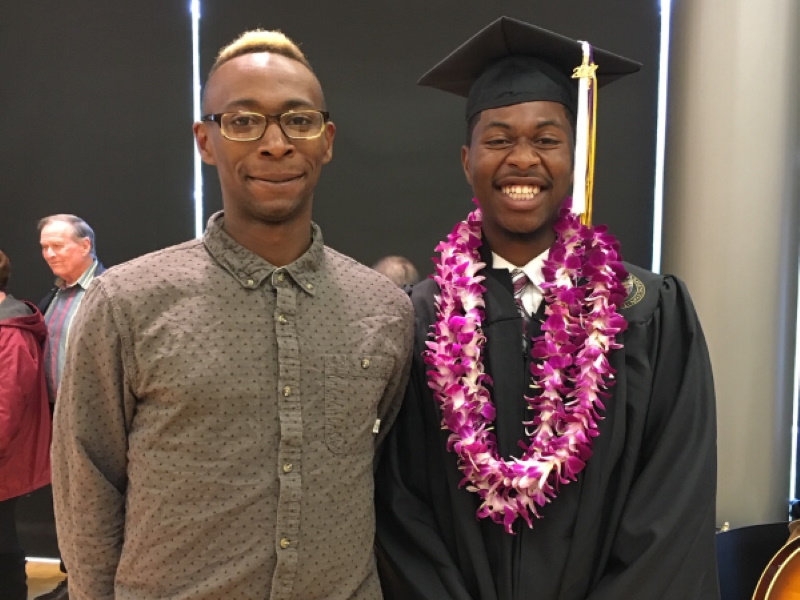
We have published two – and look forward to publishing more – feature stories highlighting some of ultimate’s prominent players of color in an effort to bring attention to their diverse experiences and enhance the visibility of such players.
The first all-Black ultimate team
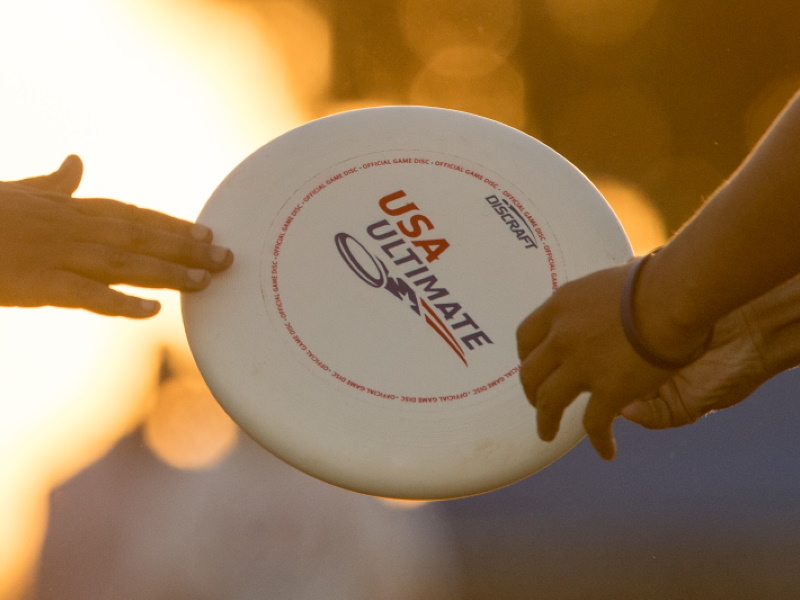
Led by an internal staff chair and an external consultant, with active participation of 75% of USAU staff, our DEI Team is dedicated to managing and implementing our DEI initiatives and programs.
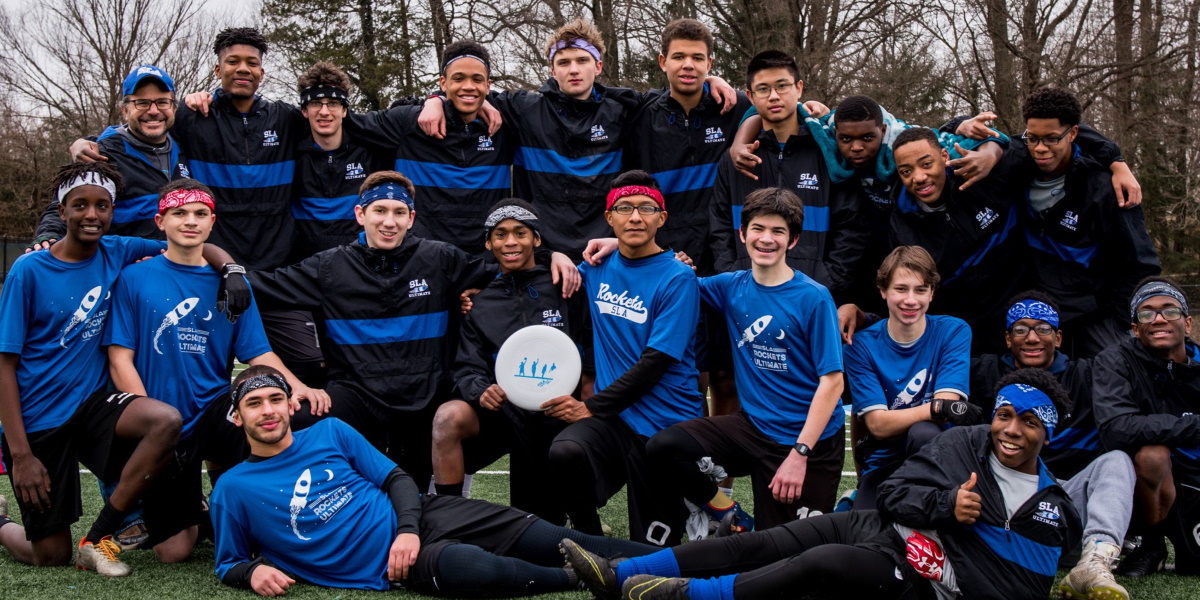
We believe financial constraints should not impede participation in the sport of ultimate at any level.
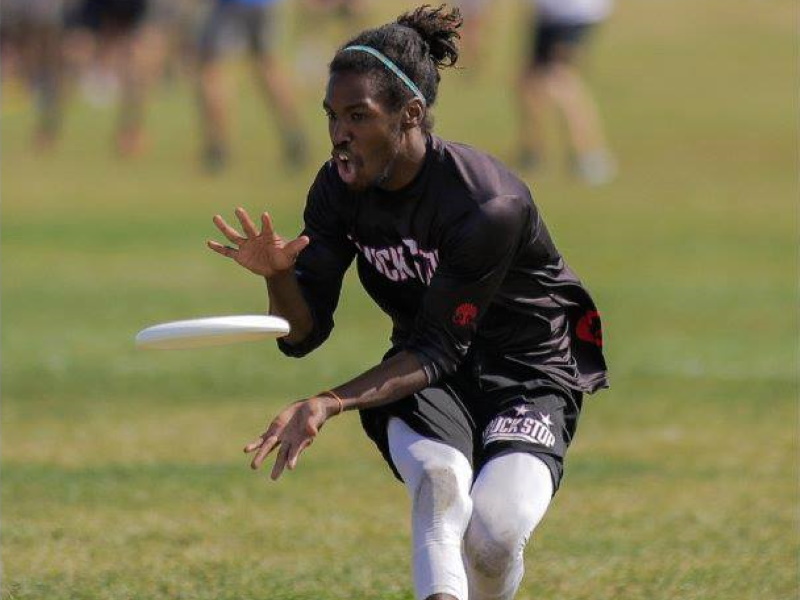
In 2019, D.C. Truck Stop’s Delrico “Rico” Johnson organized a fundraiser to support players of color attending tryouts for the U-24 National Team. Inspired by Rico’s initiative, we’re amplifying the call to contribute to this fundraiser and broadening its impact to support memberships for players of color at all levels.
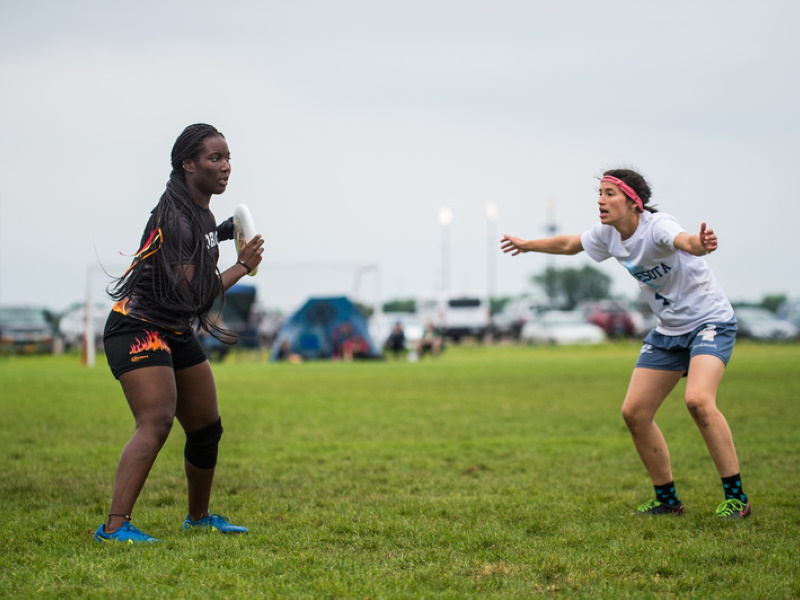
The Play It Forward program provides membership and financial assistance for youth from underserved and underrepresented communities to give them the opportunity to experience ultimate.
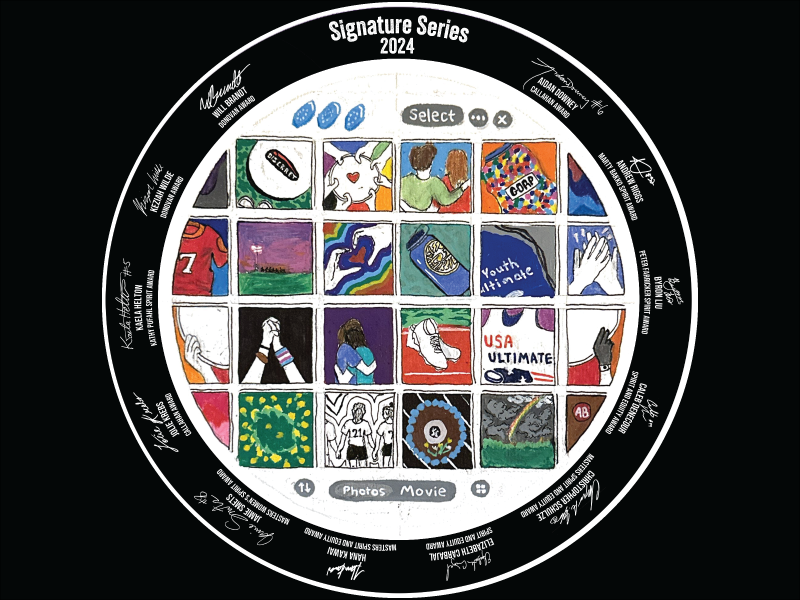
The Ultimate Foundation hosts annual fundraising campaigns, including the Signature Series disc campaign, encouraging donations to support youth development programs utilizing ultimate to build character and strengthen community.
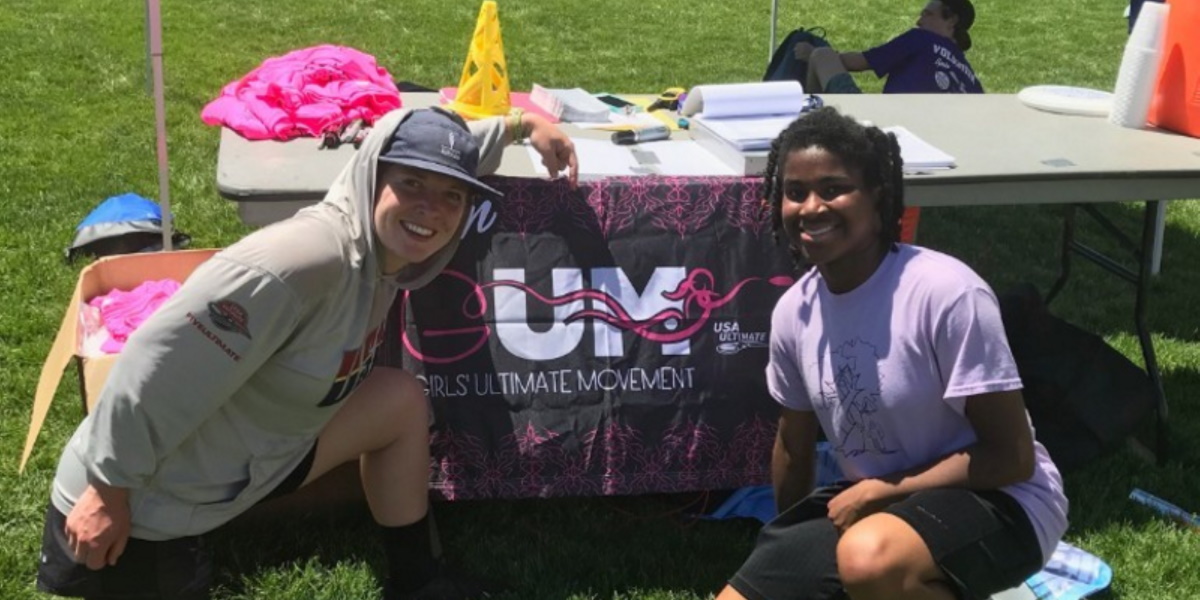
Ultimate has long been a primarily heterosexual and male-dominated sport. We believe women and LGBTQIA+ players should be actively and equitably represented within our community.
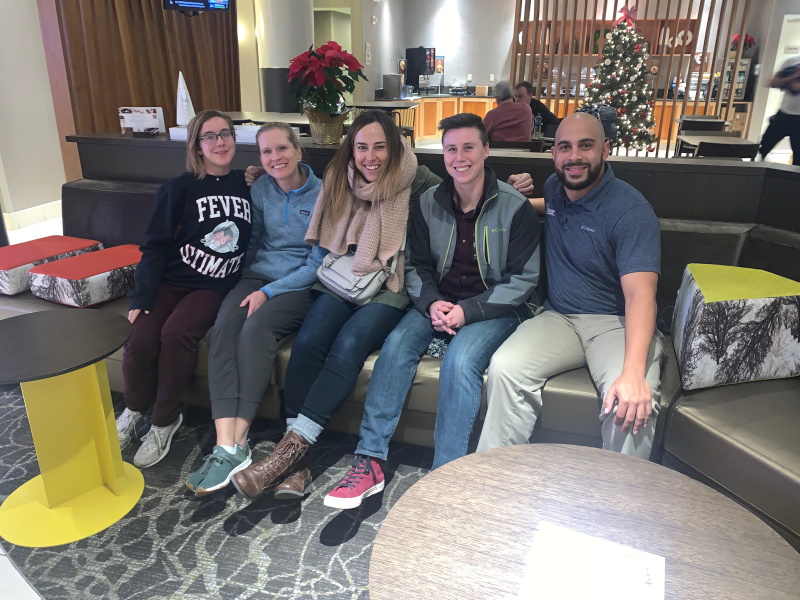
In December 2020, USA Ultimate announced the unanimous passing of its most recent Gender Inclusion Policy! After a year of undergoing research and revisions by our DEI co-chairs and Community Liaison Volunteers*, this new, inclusive policy advocates for the ability of all athletes to participate in the division in which they feel most comfortable and safe based on their indicated gender identity.
*USA Ultimate’s Community Liaison Volunteers have evolved into the LGBTQ+ Advisory Council. They are paid volunteers who identify across the LGBTQIA+ spectrum and who we work with to address and examine policies and practices that impact them and other members of the LGBTQIA+ community.
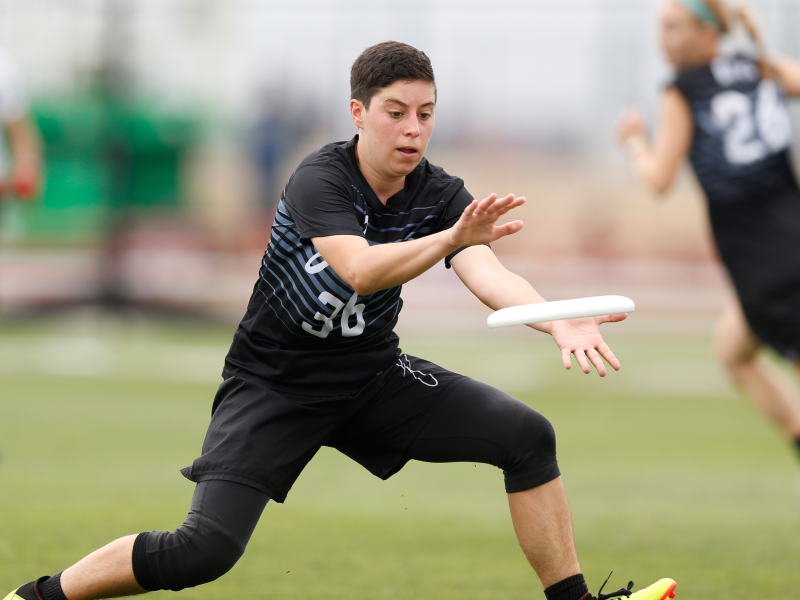
In an effort to begin to normalize the conversation around pronouns and leveraging input from ultimate athletes and coaches of the LGBTQIA+ community, we publish of pronouns for players and coaches who request it on online rosters and in our printed event guides.
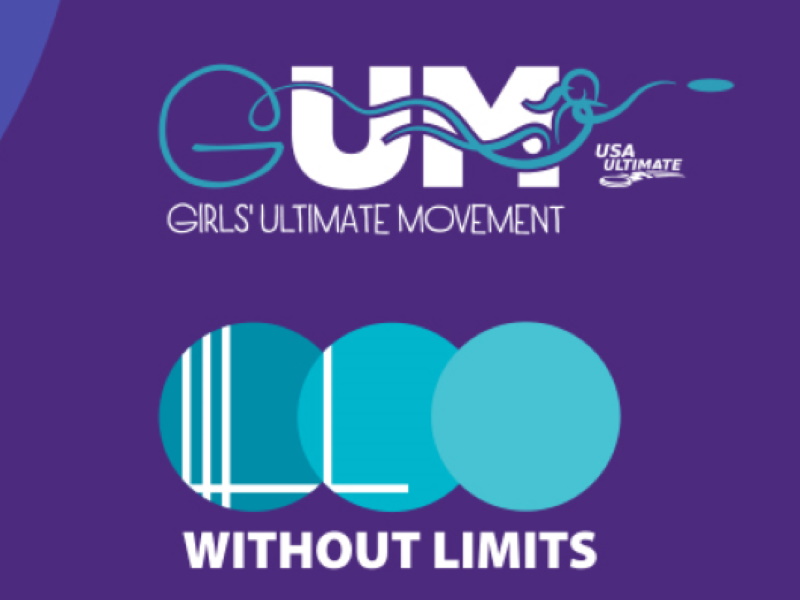
In collaboration with Without Limits and GUM, the High School Girls’ Ultimate Resources Manual – catered to anyone involved with a high school girls’ program – features articles and resources from some of the most knowledgeable individuals in ultimate and some of GUM’s biggest advocates and allies of GUM.
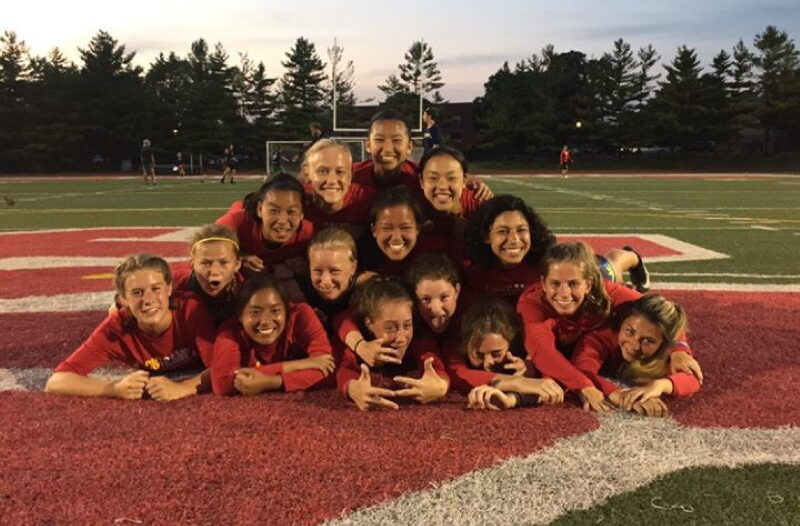
The GUM Blog features voices and perspectives of girls and women in the ultimate community to empower girls and help them connect to a shared experience.
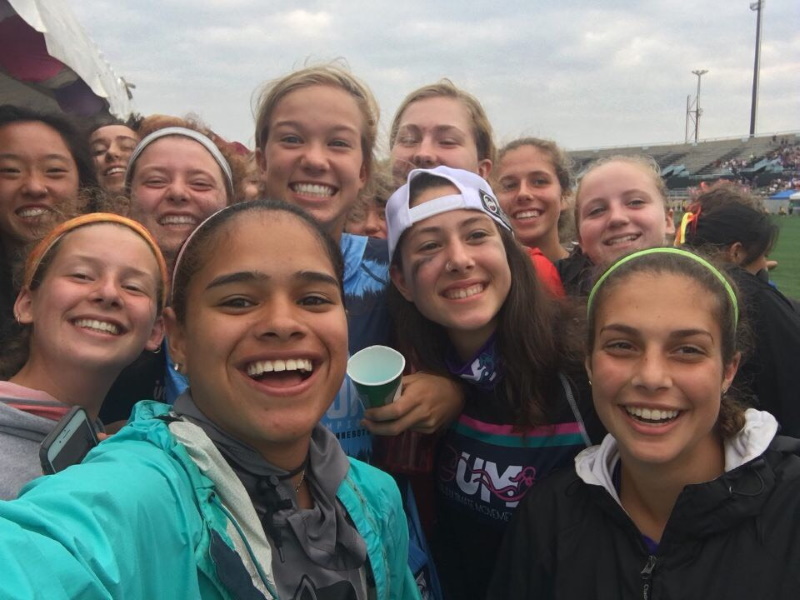
Annually held at the U.S. Open Club Championships, the GUM Ball brings together girls, women, non-binary folks and more from across the adult and youth divisions to break down barriers, build long-lasting friendships among people who might otherwise never cross paths and highlight girl- and woman-matching players.
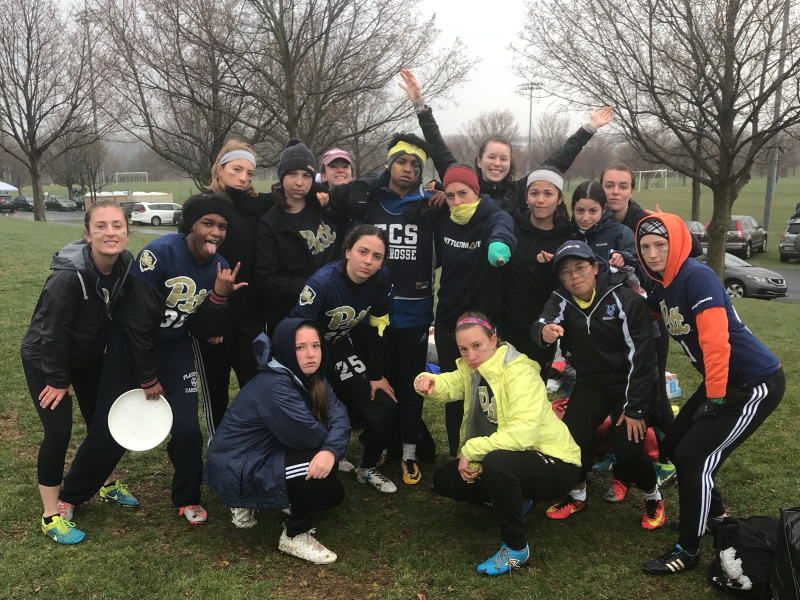
The College Women’s Startup Project was launched in 2017 to help foster the growth of college women’s ultimate by incentivizing the creation of teams and facilitating the development of new women’s programs. The initiative provides some of the resources needed most by developing college teams.
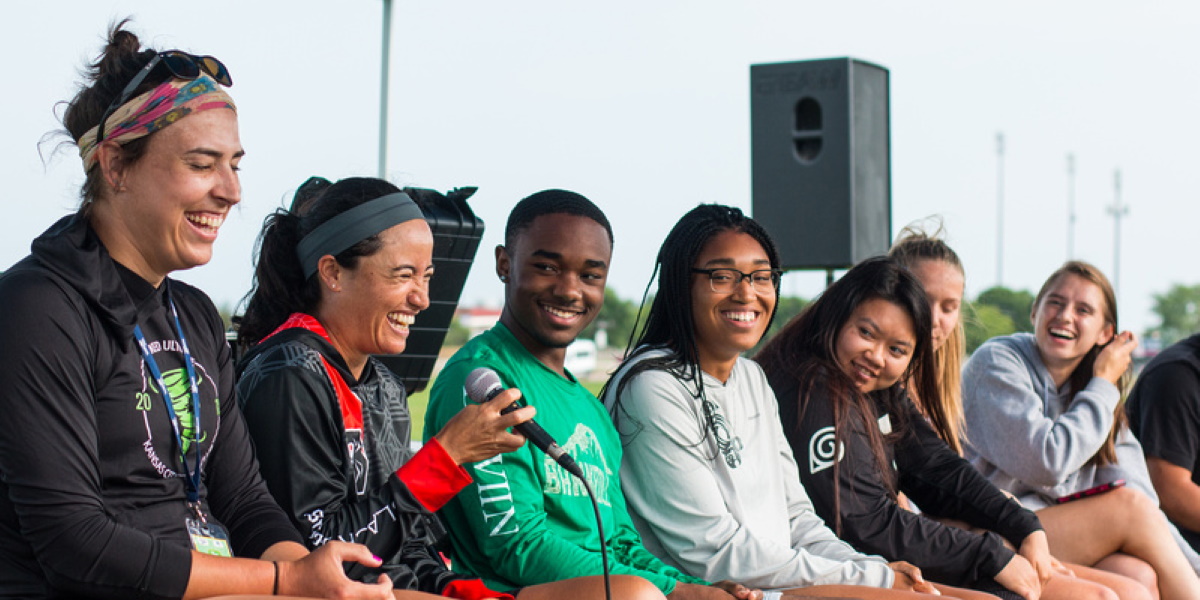
We believe, for our sport to better reflect the general population, it is essential to help create an environment where players can participate in ultimate fully as their authentic selves, without having to compromise any aspect of their identity.
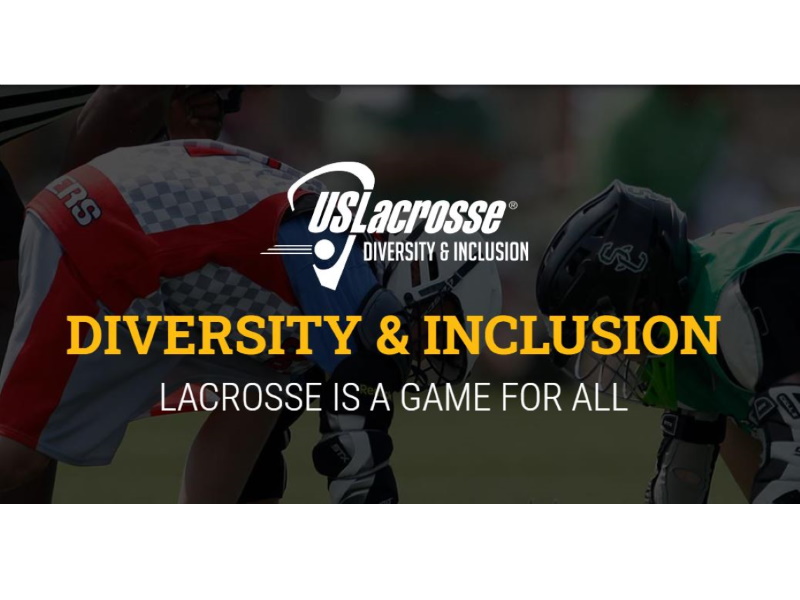
After inviting US Lacrosse Director of Diversity, Equality & Inclusion Eboni Preston-Laurent to speak at our 2020 Coach and Organizer Convention, we continued to work with her to adapt and share with the ultimate community some of US Lacrosse’s Diversity & Inclusion resources.
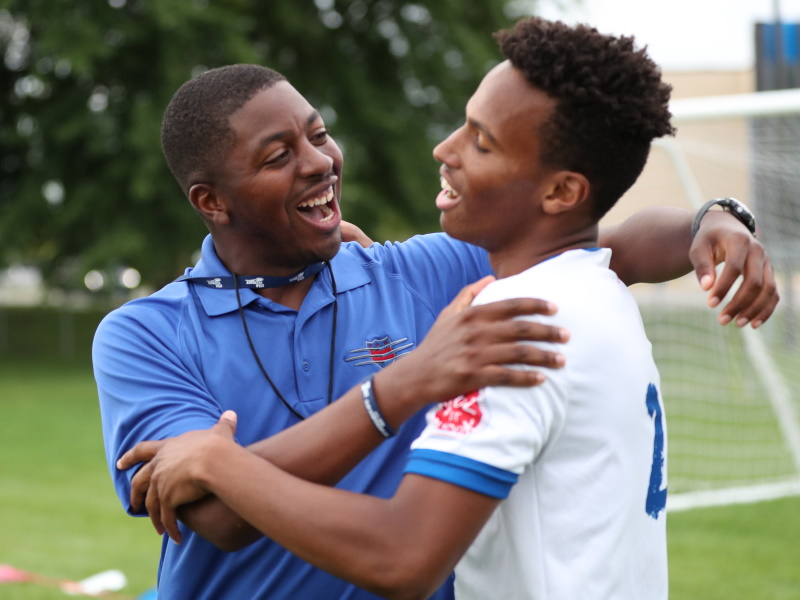
In April 2020, we broadcasted a free webinar featuring a panel of coaches providing insight on how to create an inclusive team environment. The discussion covered a variety of important topics, including key qualities to look for in an inclusive coach and the importance of recruiting coaches from underrepresented communities.
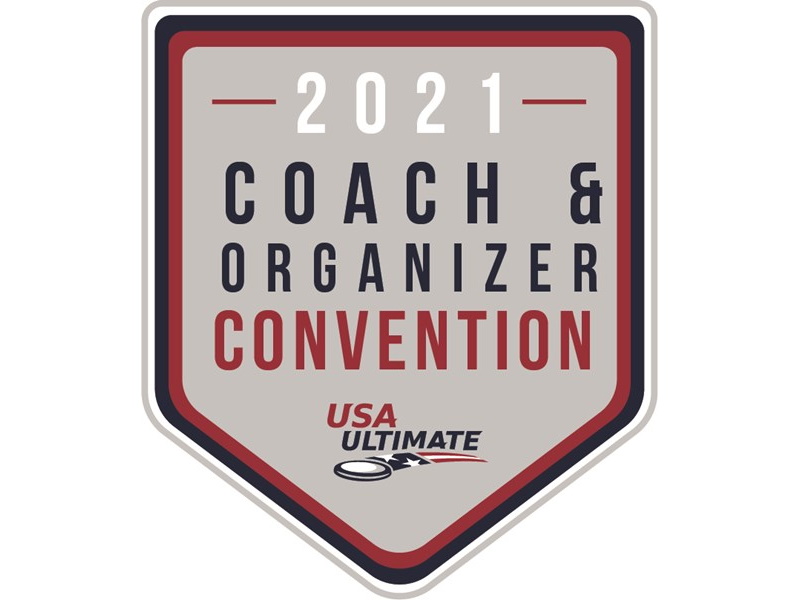
Since 2020, our Coach & Organizer Convention has featured panel discussions with representatives from local disc organizations, National Governing Bodies (NGB) of Sport, youth-serving organizations and more to discuss best practices on how local organizations can best engage youth from underserved communities and work with coaches to create an inclusive team environment.
REWATCH EDI NIGHT at the 2021 Coach Convention
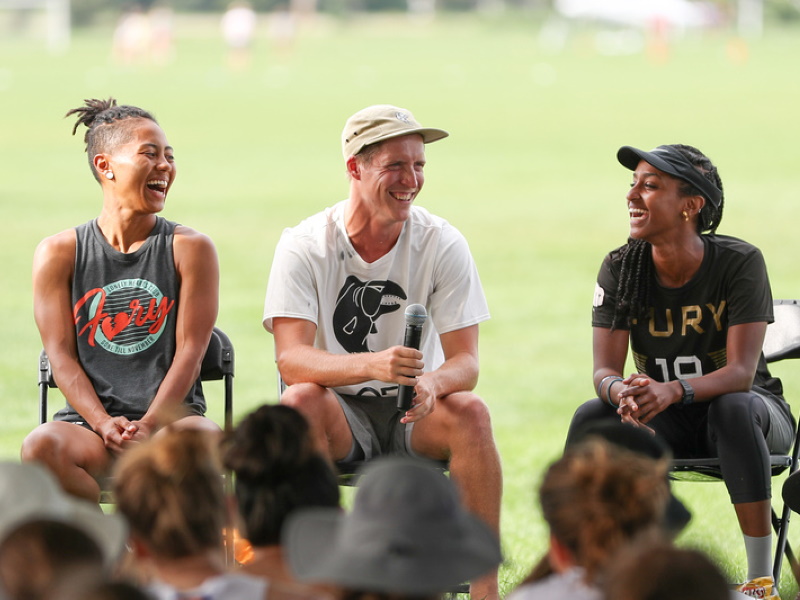
At our D-I College Championships and U.S. Open Club Championships, we have hosted and supported equity and diversity forums featuring panels of youth, college and club players sharing their experiences with these issues on and off the field. Topics of discussion have included racial and gender equity, as well as the intersection of implicit bias and microaggressions in ultimate.
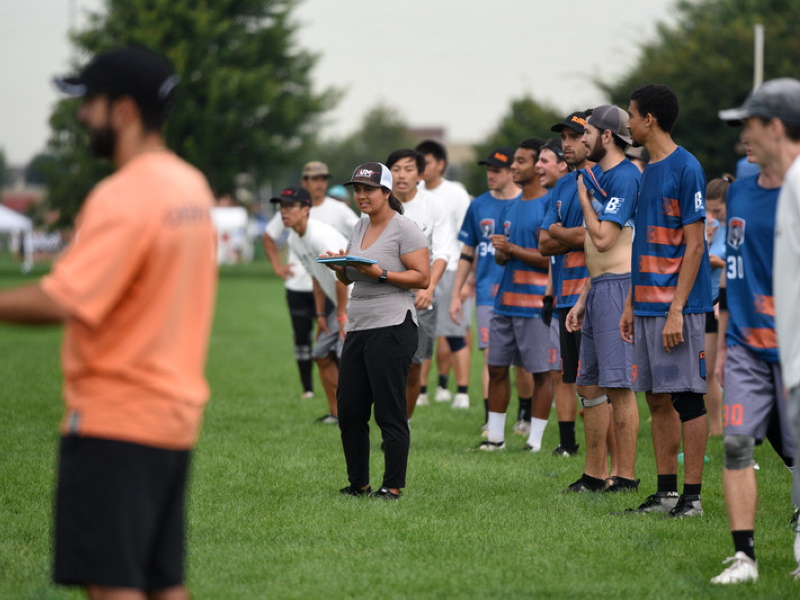
Recognizing that coaches set an important example, the inclusion sections of the certified coaching manuals and the coach facilitator’s manual were reviewed and revised to allow coaches to lead the way for ultimate players everywhere.
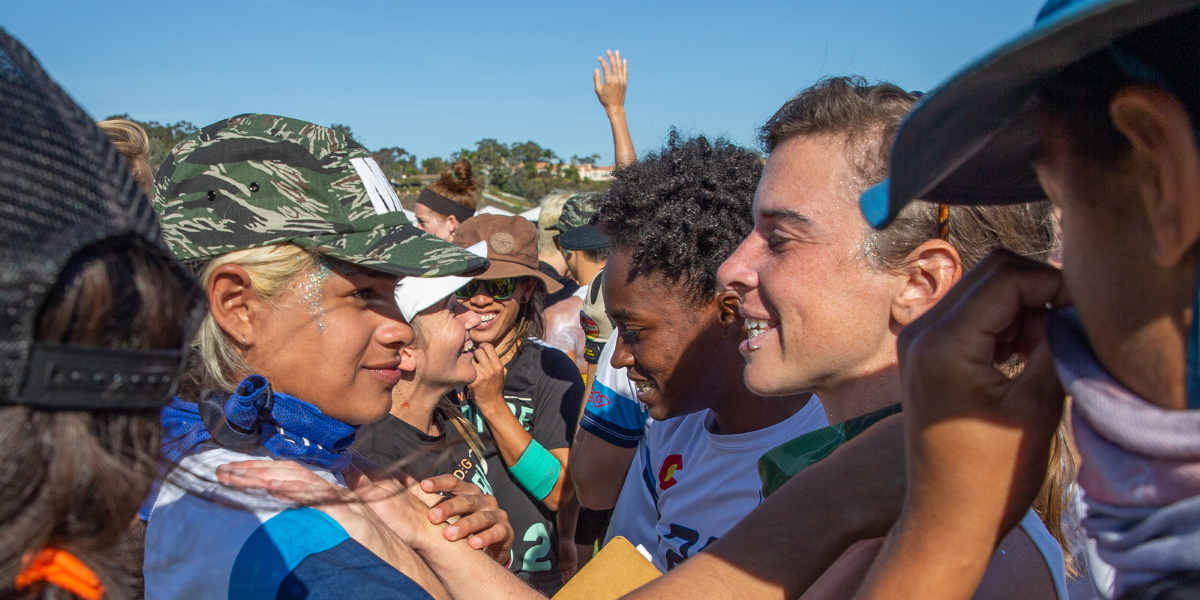
Spirit of the Game is one of our sport’s founding principles but provides a significant inroad for bias; we believe we must work to eliminate these inroads for the sport to be true to its ideal of mutual respect among competitors.
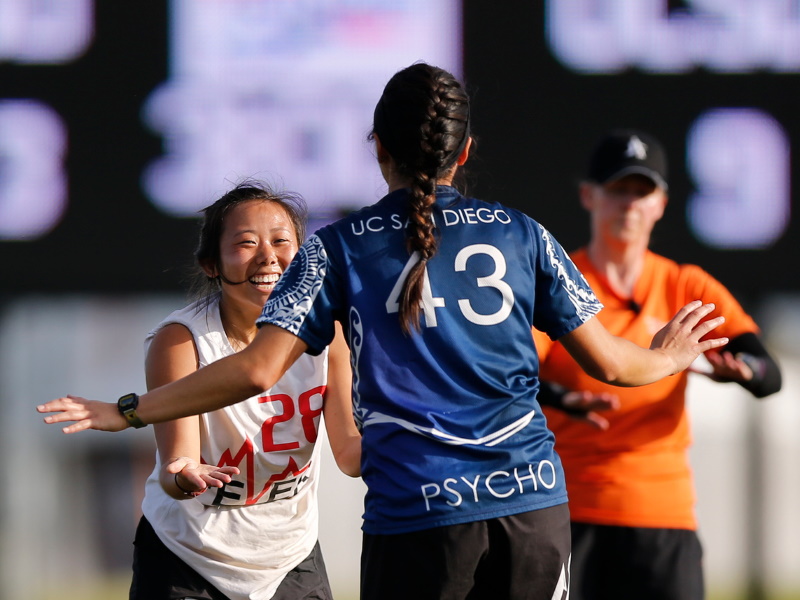
While Spirit of the Game (SOTG) is one of the great aspects of ultimate, we recognize how it can also be an inroad for bias. Along with reevaluating and modifying our SOTG resources, we encourage all teams to discuss how implicit biases impact our interpretations of the actions of others (e.g., when deciding spirit scores), to examine their expectations of “mutual respect among competitors” to be more inclusive, and to use SOTG practices and procedures in place as a means for enhancing understanding of cultural differences.
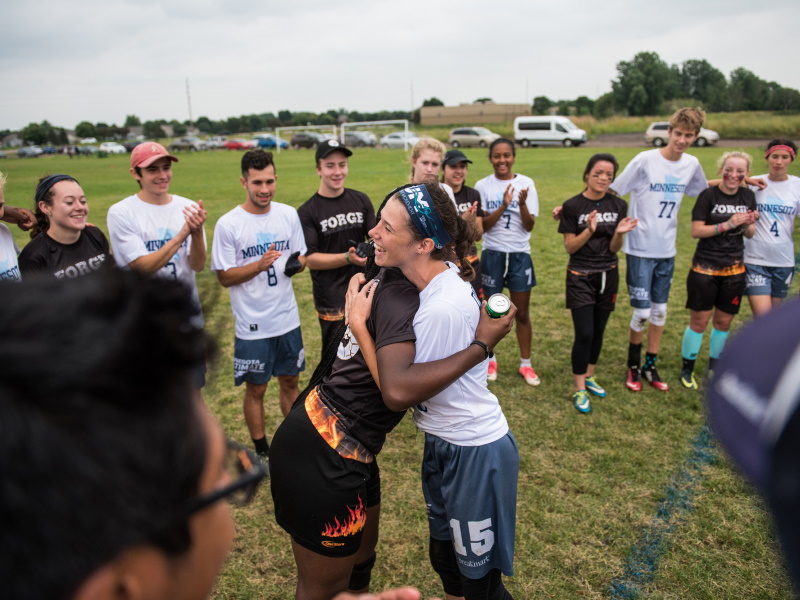
We acknowledge that Spirit of the Game, in its current form, can be an inroad to bias, significantly impacting underrepresented members of our community and their experience in ultimate, on and off the field. That acknowledgment led to the review and extensive revision of the spirit score sheet and the spirit captains’ packet.
Best practices for diversity and inclusion, courtesy of US Lacrosse.
A list of strategies for how to respond when hearing anti-LGBTQIA+ comments and encourage a safe and welcoming environment.
US Lacrosse has designed a free online training tool to help further educate coaches, parents and athletes about the impact of diversity and inclusion. Just create a US Lacrosse account, and you can take the course for free.
This article highlights challenges Chris Lehmann and his high school team, comprised predominantly of players of color, frequently face and raises questions about what can be done to build a more inclusive ultimate community.
An online curriculum on LGBTQ inclusion in athletics. Create an Athlete Ally account and you can take the course for free.
13 tips on how to help youth understand diversity and inclusion in society.
This is by no means an exhaustive list, but rather a starting point for those looking to grow their knowledge and understanding.